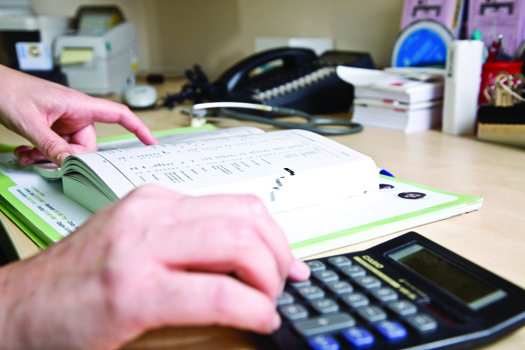Government rules out review of pension tax charges

The Government has no intention to review tax charges applied to pension pots that grow too quickly, despite months of criticism from GPs that the issue is adding to workforce problems.
During a parliamentary debate last week, House of Lords Cabinet Office spokesperson Lord Young of Cookham revealed ‘there are no plans to have a public consultation on the tax rules’ and instead pointed to the proposed introduction of a more flexible NHS pension system.
But when the health secretary last month announced plans for the flexible pension system – which would allow GPs to cut their pension contributions by half, thereby avoiding tax charges – doctors said this was not enough to solve the problem.
The BMA has previously warned GPs are retiring early or cutting their hours of work – some in their 30s – to avoid the tax charges, which are applied to anyone whose pension pot grows by £40,000 or more in a year, or more than £1m in a lifetime.
In response to the revelation that the Government will not be reviewing the tax rules, the BMA stressed how the charges are having an ‘unacceptable effect on doctors’.
During the debate last week, Conservative MP Lord Naseby asked the Government ‘what steps they are taking to review the tax rules relating to NHS pensions and whether they intend to have a public consultation on the issue?’.
In response, Lord Young said: ‘I am aware of concerns raised by NHS doctors about the impact of annual allowance tax charges. Although there are no plans to have a public consultation on the tax rules, on 3 June the secretary of state for health and social care announced his intention to consult on introducing a new pension flexibility for high-earning NHS clinicians affected by annual allowance tax charges.’
A Treasury spokesperson confirmed to Pulse this meant the Government did not intend to review the tax rules.
Under the current NHS pension scheme, there is no flexibility in the amount of money NHS employees contribute towards their pension – with the highest earners being required to pay 14.5% of their salary.
The annual cap on how much pension pots are allowed to increase by, tax-free, has been set at £40,000 since 2016. At the same time, new rules were brought in reducing the amount of tax-free pension benefits that can be accrued over a lifetime – from £1.25m to £1m.
GP leaders have long called for the scheme policies to be reviewed, warning that the annual allowance and concerns over large tax bills have caused serious damages to recruitment and retention.
But during the debate, Lord Young claimed ‘less than 1% of taxpayers will be affected by the taper of £40,000 that was introduced, and more than 95% of those approaching pension age will not be affected by the lifetime allowance’.
A BMA spokesperson said: ‘The impact of the government’s pension changes are having an unacceptable effect on doctors who in many cases are facing large additional, unfair tax bills that force them to consider reducing the hours they work in the NHS or make plans for early retirement.
‘Patients cannot afford to lose experienced clinicians, especially at a time of incredible stress on the health service which is suffering from widespread staff shortages.’
Later this month, the Government will launch a consultation on the implementation of the new ’50:50′ pension section, which would see doctors reduce their normal contributions towards their pension pot by half and receive half the amount of their pension in return.
Lord Young said he will see whether the consultation on the 50:50 session ‘can be stretched’ to include a broader review of NHS pensions.
He added: ‘The secretary of state is willing to discuss other models for pension flexibility; we very much hope that, if we make these changes, high-earning clinicians will be able to attend to more patients while saving for their retirements without incurring significant tax charges.’
Commenting the BMA spokesperson said: ‘Lord Young does, in the Lords debate, confirm he will ask if the current planned consultation’s scope can be widened, which is a step the BMA has argued for.
‘We will continue to make clear to the government that it must reconsider its position which is unfair for doctors and bad for patient care. There needs to be particular, urgent consideration of removing the annual allowance and particularly the tapered annual allowance, which is at the centre of many of the issues being caused by these pension changes.’
Previous pension warnings
However, the Chancellor downplayed hopes for pension tax reform, saying the annual allowance was ‘necessary‘.
It emerged last month that there has been a ‘sharp rise’ in the number of GPs seeking pension advice, with some GPs facing personal bills of up to £50,000.
Pulse July survey
Take our July 2025 survey to potentially win £1.000 worth of tokens













